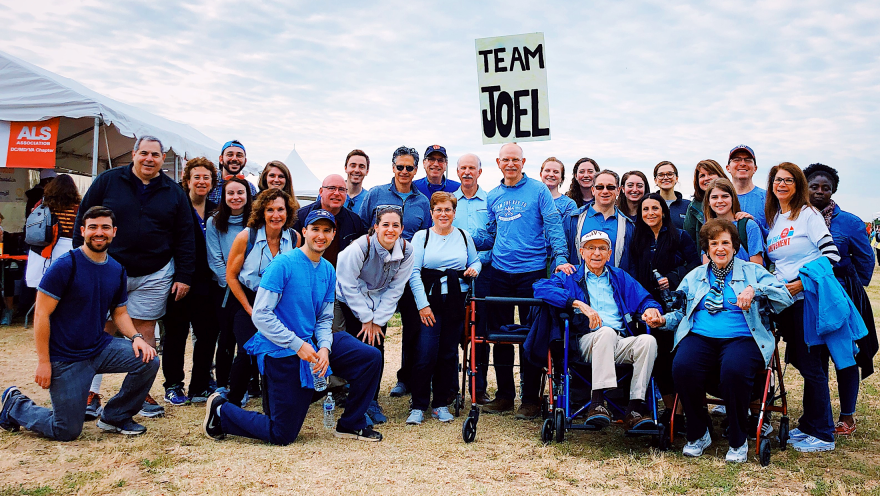Joel Shamaskin spent 30 years caring for others as a primary care physician before his ALS diagnosis rushed him into retirement. Over the course of his career he had cared for some patients who had the disease, so by the time he received confirmation of his diagnosis, he and his wife Ann, who was a primary care physician as well, felt like they already knew. But ALS hasn’t taken away his desire to care for others.
“We were told I had to go through tests to confirm things, but I think we both knew in our hearts that that's probably what this was,” he said. “We thought, ‘Well, maybe it'll be something like a brain tumor or some other problem with my spinal cord,’ -- things you wouldn't want to wish on yourself, but I know we went through that period of trying to rationalize, to think through what was happening,” Joel said he and Ann stopped practicing within two weeks of having his diagnosis confirmed.
They also had to share the news with their three adult daughters, conversations he said he will never forget. He said he feels fortunate to have family nearby, “They step in to help with things that we either can't do or shouldn't do anymore.”
Ann is Joel’s primary caregiver, and he explained how she has had to take on many of the household responsibilities that used to be his – chores that can often be seen as annoying yet mundane, everyday tasks -- like taking out the trash or fixing things around the house.
“I walk with a walking stick if I'm with my wife, or I use a walker if I'm out on my own, going over longer distances. But for those other things that are around the house or going up a hill to do some gardening -- I'm fortunate enough that I don't see those things right now as limitations because she's now like an extension of me,” he said.
When Joel was first diagnosed, they moved to a smaller house in a new neighborhood and learned soon after one of their new neighbors was living with ALS. With Joel’s own progression being relatively slow, he and Ann befriended his neighbor, who lived alone. They became caregivers to him – spending time with him, helping with things around the house, and providing care during emergencies. “It meant a lot to us to do that,” he said.
Joel has been engaged with the ALS community around Rochester, which he says allows him to turn his challenges into an opportunity to help others. “I've really enjoyed the fundraising I have done over the past few years. It's become a big part of my community work and how I stay connected with family and friends,” he said.
He also has started playing the trumpet again. “There's a study that was published recently that showed that ALS patients who become apathetic have a higher rate of burnout of their caregivers. I have decided it's important to me to keep doing things that will keep me optimistic, to feel like I'm contributing,” he said. He has even started playing in community bands. “These are community bands for seniors but being able to do that has done two things. One is I know it helps my lung capacity by having to blow hard on the horn, but also it helps me emotionally because I know it's something I can do. It's creative and fun, and that's been a real boost to me. I know it's something my family enjoys seeing. So again, it's a way to remain optimistic,” he said.
For more information and resources for people living with ALS, visit our website at alsa.org.


Join the conversation. Please comment below.